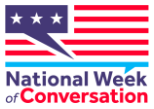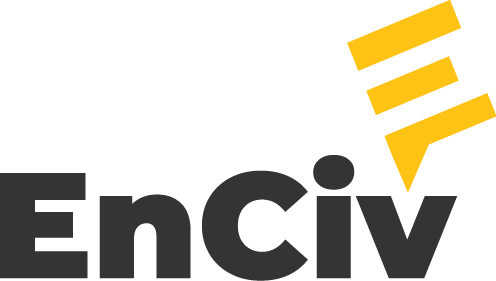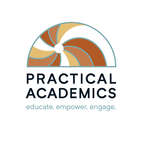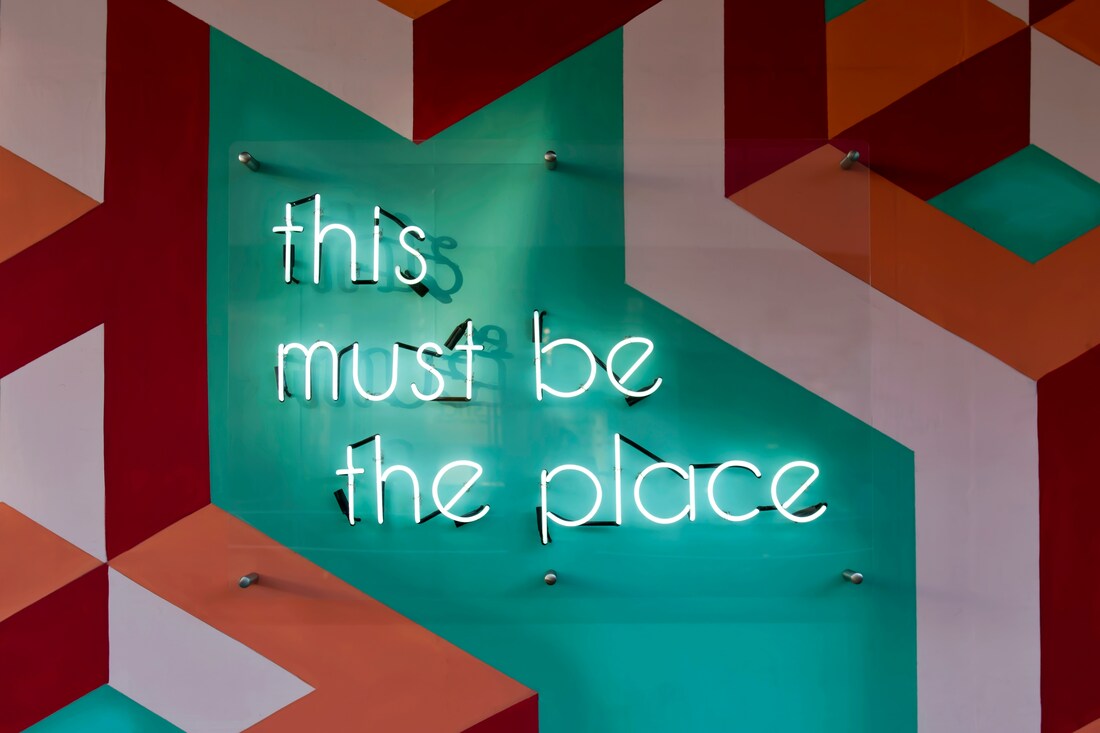 Social Pinpoint is hosting the upcoming webinar, "2024 State of the Practice: 10 Public Engagement Trends in Transportation", on May 22nd at 11am Pacific, 2pm Eastern. The transportation industry is witnessing rapid evolution in public engagement practices, highlighted by over 430 practitioners sharing insights on challenges, tools, and best practices in a comprehensive review. Join industry leaders in exploring the top 10 key findings, including challenges, staffing strategies, diversity enhancement, and the impact of hybrid engagement on public participation. Thanks to Genèse Castonguay, Social Pinpoint's Chief Marketing Officer, for sharing this announcement with the NCDD network! Learn more in the post below and on Social Pinpoint site here.
0 Comments
Enhancing Civic Conversations with the Fora App during National Week of Conversation (NWOC)4/16/2024  ICYMI - A great line-up for the National Week of Conversation (NWOC) is happening now until this Friday. Today is an interesting NWOC signature webinar titled "Building Communities that Listen: Crossing Party Lines Using the Fora App", at 12pm Eastern, 9am Pacific. Participants from the Fora Mobile pilot will share their experiences with the platform aimed at enhancing civic conversations. This event showcases an app-based solution for addressing toxic divisions and encourages attendees to explore implementing similar tools in their communities. It's tailored for individuals involved in fostering meaningful conversations across diverse sectors like local government, education, faith-based organizations, and media. Learn more in the post below and join the event here! We are excited to announce the new NCDD Job & Internship Board!
Our job and internship board connects individuals and organizations committed to driving positive change through meaningful conversations and collaboration. Whether you're a seasoned practitioner or a newcomer to the field, our job and internship board offers a wide array of opportunities tailored to your skills and interests.
We'll share new positions via the Job-Internship Board regularly, so make sure you bookmark the page and check back when you're looking for new opportunities. You'll notice at the top of the NCDD site, under the "News" tab, there is link to the new "NCDD Job-Internship Board". Jump to the NCDD Job & Internship Board here: www.ncdd.org/dd-jobs-internship-board. The Making A Living List (D&D Jobs List) will still remain active and we encourage members to continue sharing job/internships in that space if that is your preference. Opportunities shared on the Jobs list will be reshared on the Jobs Board to help further boost announcements in a public-facing place on the NCDD site for easier access.  Join NCDD Friends, Social Pinpoint, as they feature the City of Pittsburgh's award-winning online community engagement program, Engage PGH. Today's webinar at 1pm Pacific, 4pm Eastern will lift up how they've garnered recognition for inclusive, transparent, and equitable community involvement. Discover practical strategies for boosting public input, increasing engagement results, and scaling online engagement across various city departments, all while adhering to IAP2's spectrum for public participation and building trust through real-time feedback. Learn more below and register here!  The 2024 Digital Participation Tool Ratings, launched by People Powered, offer expert evaluations of leading digital participation tools to aid democracy practitioners worldwide in finding the most suitable options for their needs. This latest edition features new platforms, an enhanced methodology, and improved accessibility through Airtable. Developed in collaboration with six global participation technology experts and incorporating feedback from diverse users and developers, the ratings strive to foster accessibility, inclusivity, and security within digital participation platforms. Learn more below. If you're looking to hone your political discussion muscles (especially as we move towards the 2024 Election Season), then make sure you check out the new AI Angry Uncle Bot, powered by OpenAI's ChatGPT-4 technology. Created by Dr. Karin Tamerius, "the innovative chatbot offers a unique, gamified approach to political discourse that promises to be a revolutionary tool in the fight against toxic polarization". Find Dr. Tamerius' message to the NCDD's listserv below, the press release, and direct link to the AI Angry Uncle Bot.
Have fun and let us know your experience in the comments below!  Last week NCDD held our December webinar, featuring EnCiv and their "Undebates" tool. EnCiv is a nonpartisan organization looking to challenge sensationalism and polarization in civic discourse by offering social technologies that power widespread, cross-partisan discussion and better decision making. In this webinar, David Fridley and Adolf Gundersen provided an overview of their latest tool, Undebates, and talked about other discussion processes where a platform of this sort could be helpful, including their Unroundtable tool. Thank you to everyone who joined us and shared your questions and feedback! Check out the webinar recording here. EnCiv - Undebates for Organizations For organizations that are run democratically, getting members to participate - meaning vote, is a challenge. They are forced to compete for people's attention from all the usual sources - social media, mass media, even streaming media. EnCiv allows organizations to create "Undebates" for their elections. It automates the process recording video Q&A with candidates and assembling it into an interactive viewer for voters to review on their own schedule and quickly decide, and it can be shared on social media, and embedded on a website. The same process can also be used to present differing views on ballot measures. For now, you are able to create an account and try it out for free. Learn more about EnCiv and the Undebates tool at www.enciv.org/undebates.  NCDD is excited to announce our next webinar featuring NCDD Member Org EnCiv! Join us on Tuesday, December 13th from 1-2pm Eastern/10-11am Pacific for this FREE webinar sharing more about the development of EnCiv's "Undebates" tool. EnCiv is a nonpartisan organization looking to challenge sensationalism and polarization in civic discourse by offering social technologies that power widespread, cross-partisan discussion and better decision making. In this webinar, we'll be joined by David Fridley and Adolf Gundersen who will provide us with an overview of their latest tool, Undebates, and talk with us about other discussion processes where a platform of this sort could be helpful. He'll also discuss one such effort, called the Unroundtable. Register today to join us! EnCiv - Undebates for Organizations For organizations that are run democratically, getting members to participate - meaning vote, is a challenge. They are forced to compete for people's attention from all the usual sources - social media, mass media, even streaming media. EnCiv will demo a new tool that allows organizations to create "Undebates" for their elections. It automates the process recording video Q&A with candidates and assembling it into an interactive viewer for voters to review on their own schedule and quickly decide, and it can be shared on social media, and embedded on a website. The same process can also be used to present differing views on ballot measures. For now, you are able to create an account and try it out for free. In this webinar we are also looking to brainstorm other forms of discussion processes to adapt this to, including what we call an "Unroundtable." The challenge is to create connection between people at large scale when they can't all be in the same place at the same time. Learn more about EnCiv and the Undebates tool at www.enciv.org/undebates. Our friends at MetroQuest are hosting a webinar next week - Wednesday, February 23 at 2pm EST/11am PST. Below is the description of the event and a link to register.  Policy-oriented and long-term transportation planning are topics that residents are reticent to give input on in the best of times. In this webinar, experts from the Kentucky Transportation Cabinet and Michael Baker International share the story behind their exceptional public engagement success! NCDD Member Michael Freedman of Practical Academics shared the following blog post with us. In the post, Michael shares best practices for your online meetings – a timely topic for this moment! We encourage you to check out the article below, or over at the Practical Academics site here.  Online Meeting Best Practices The advantages of online meetings are to save travel time, convenience, and flexibility while retaining or augmenting the benefits of group interactivity. For interactivity, we need engagement; for engagement, we need encouragement and trust. A one-way webinar is not a lot better than a video or a one-to-many lecture. Here are some points to consider in developing and running an interactive online meeting. |
Categories
All
|
Follow Us
ABOUT NCDD
NCDD is a community and coalition of individuals and organizations who bring people together to discuss, decide and collaborate on today's toughest issues.
© The National Coalition For Dialogue And Deliberation, Inc. All rights reserved.
© The National Coalition For Dialogue And Deliberation, Inc. All rights reserved.


 RSS Feed
RSS Feed